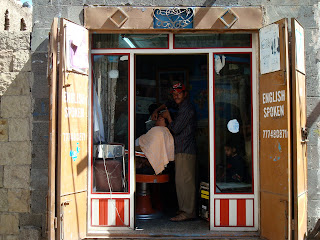My year in brief
- Rang in 2010 in New York;
- Traveled to Yemen and went back in time several centuries;
- Spoke Italian to a Somali man, ate pancakes with Canadian maple syrup with Palestinian friends, ate Indian food served by an Ethiopian waiter, had Argentinian yerba mate with Lebanese friends;
- Had a run-in with a rowdy Saudi;
- Dipped my feet in the Gulf of Aden;
- Met the most heart-warming and hilarious children in displacement camps in northern Yemen;
- So proud to have a lovely girl in India share my name;
- Got used to the sound of the call to prayer, then traded it in for the sound of the noon gun from Citadel Hill;
- Learned to love fog, fiddleheads, Viola Desmond and news stories about roundabouts;
- Got worked up about the Gaza blockade, the Queen and the World Cup;
- Spent three days in Accra;
- Picked wild blueberries, raspberries and roses by the sea;
- Celebrated – from a distance – the first birthdays of Zahra and Romy;
- Watched beavers swim along the lakeshore and went to sleep to the sound of loons;
- Had a wine and cheese party to welcome me back to Yemen;
- Spent three days in Cairo;
- Was once again amazed by the resilient children of Yemen;
- Got goosebumps watching the release of Aung San Suu Kyi;
- Went to an 800-year-old hammam;
- Has never had a better answer to the question 'Where are you from?': so happy the answer is Nova Scotia.
































